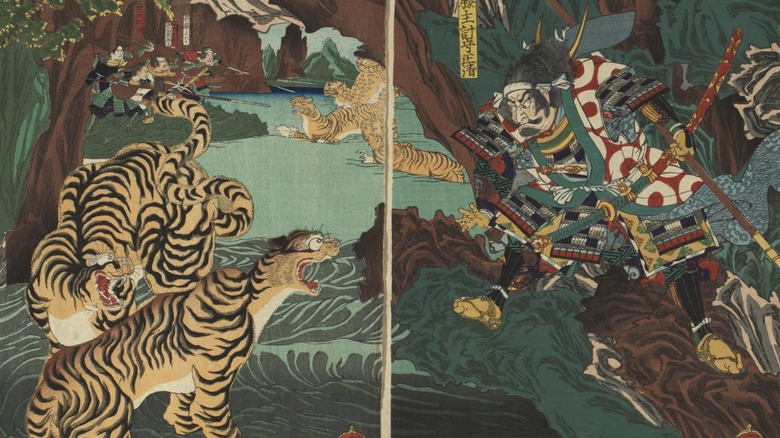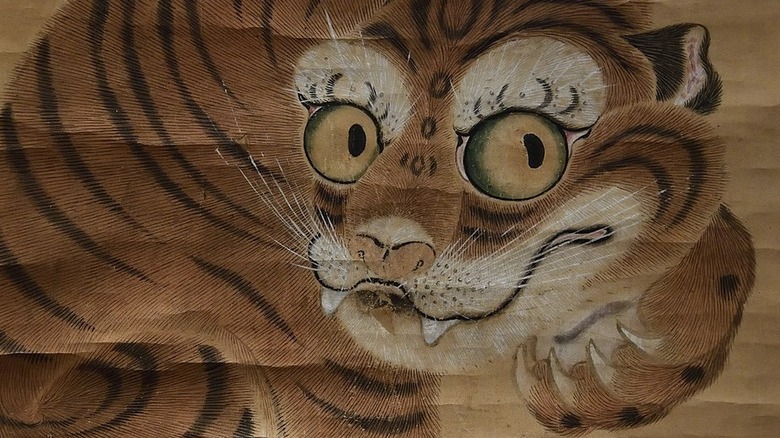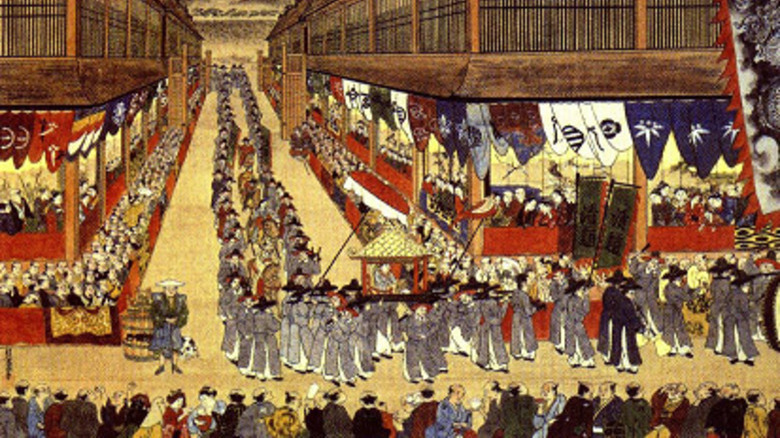There's A Reason Why Many Korean Folk Tales Open Their Stories With This Same Phrase
Those of us who were fortunate enough to have them can hopefully recall wonderful childhood memories of a parent or grandparent lulling us to sleep. While the stories' characters may have ranged from abandoned princesses in towers to valiant warriors, trickster fairies, or terrifying beasts, chances are you probably fell asleep before the conclusion.
Regardless of how far you'd get in the story before falling asleep each night, one thing we can all hopefully remember is how the story was first set up. These four words, "Once upon a time," were evocative enough to help our minds' eyes set sail along the stream of our imaginations every night. Although the morals and personalities of these tall tales have varied, many Western folklore traditions share the same magical beginning.
In Korea, the scene for many a folktale is set with an entirely unique introduction that's just as fantastical, if not more so. "A long, long time ago when tigers used to smoke..." is the prelude to nearly every Korean fairy tale (via ”A Tiger by the Tail and Other Stories From the Heart of Korea”). So where, exactly, did this fabled turn of phrase originate from? The origins of this expression, like many of the world's most fascinating cultural idioms, have exactly the right sprinkling of humor, history, and satire in their creation.
Cultural Currency of Tigers in Korea
According to the National Museum of Korea, tigers have a profound cultural significance in Korean folklore. There were once many tigers in Korea because of the country's topography, which features numerous valleys and mountain ranges. In Korean folk tales they maintained an interesting duality; both guiding heroes on their quests as the physical manifestation of benevolent spirits, or as a snarling adversary blocking their path (per ”A Tiger by the Tail and Other Stories From the Heart of Korea”).
On a slightly more political level, tigers in Korean culture became metaphorically connected with strength and the establishments that wielded varying levels of power over the people. Tigers, for example, were widely used in paintings or statues as a symbolic guard of royal graves and murals (per National Museum of Korea). As we'll see, this made them well-suited for satirical humor.
Sadly, the Korean, or Siberian, tiger populations are now extinct in Korea, owing to poaching and conflict between North and South Korea. This is owing, in part, to the environmental consequences of Japan's conquest of Korea, which saw Siberian tiger populations hunted to extinction. After the Korean War and the creation of the Demilitarized Zone, most of the woodland was damaged irreversibly, making it impossible for these tigers to roam their ancestral territories.
Although they can still be found in eastern parts of Russia and China, their numbers are critically endangered (via Russian Geographical Society). Therefore, this nostalgic tinge to this folktale expression carries a certain tragic poignancy in the modern day.
Tobacco and Class Divisions in Korea
Tobacco consumption, on the other hand, has a curious and complex relationship with Korean culture. Korea was not the first, nor was it the last, civilization to believe smoking was beneficial. Tobacco was pushed as a health aid in the early days of its introduction to the Korean peninsula, and practically the whole population, from the elderly to children, began smoking (via Korean Times).
This penchant for the tobacco pipe brings us to the second element of this charming expression. During the time this saying was created, Korea was under the empirical control of the Joseon (or Chosŏn) Dynasty, which reigned from 1392 to 1910, per Britannica.
By the 17th century, tobacco smoking had become an indicator of social prestige. While the working class persisted in smoking, they were prohibited from smuggling tobacco, lighting up before specific ceremonies, and smoking in front of superiors in the Joseon caste system (per History of Korea Blog). The phrase "We miss the day when even the tigers were smoking" refers to the days when only the rich and powerful members freely indulged in tobacco use while the poor and powerless looked on in envy.
Through the generations, a modified version of "A long, long time ago when tigers were smoking ... " became commonplace when setting the scene for stories of ancient events, folktales, or fairy tales in Korea. Although its initial satirical sting has been diluted with time, the comical roots of this folk expression reflect the mentality of a culture that sought equality by making fun of the powerful and privileged (per Encyclopedia of Korean Culture).


